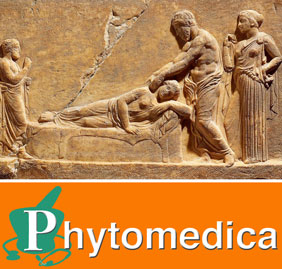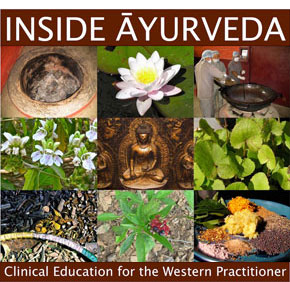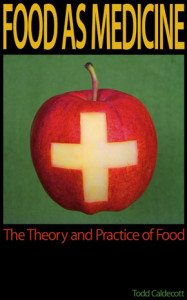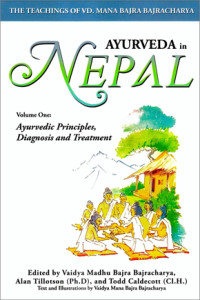I was recently forwarded this short article on the benefits of copper, and was asked if there was any truth to the claims. The author of the article is a noted superfoods guru, and suggests that to improve our health we should be eating and drinking from copper dishware. Specifically, the author makes several claims in support of this assertion, that copper “stimulates the brain” and “balances the thyroid”. A quick search on google, and I easily found other websites making the same types of conjectures. Normally I wouldn’t care what someone says, but when there is a health risk involved, I have a duty to respond if asked.
Copper is one among 14 different trace minerals required by the body. Although we require it in relatively tiny amounts, it plays a number of key roles, and like all oxygen-dependent (aerobic) organisms on earth, we can’t live without it. As a constituent of the enzyme cytochrome c oxidase, copper plays a critical role in cellular energy production, catalyzing the reduction of molecular oxygen (O2) to water (H2O), generating an electrical gradient used by all aerobic organisms to generate energy.

Suffice it to say, copper is a very important nutrient. But any preferment for copper is easily overstated, not only because it is one among many vital nutrients, but because it has a number of interactions, including with minerals such as zinc, sulfur, phosphorous, iron, and molybdenum. From a nutritional perspective, it’s very important that we get all these nutrients in biologically appropriate amounts and ratios. Fortunately it’s not too difficult if we aim to eat naturally-prepared, traditional foods, and take measures to support gut health. It can, however, become an issue with extra-dietary exposure, from environmental contamination, cookware/dishware, medical treatments, or supplementation.
In the article, the author makes the claim that “copper stimulates the brain.” While this certainly suggests some kind of nootropic effect, upon deeper investigation, it’s really only the most general of correlations. As the article states, copper is essential in the production of myelin, a lipoprotein sheath that protects and support the neurons. But this function is merely an expression of cytochrome c oxidase activity – an enzyme that every other cell in the body also depends upon. So before you start thinking that you might need more copper to improve brain function, that it might “stimulate” your brain, you might consider that copper accumulation in the brain is associated with neurodegenerative disorders such as Alzheimer’s disease.
Among the other claims made for copper in the article is that it “balances the thyroid.” But does it really? It’s been known experimentally for years that a deficiency of copper is associated with increased thyroid hormone levels, i.e. hyperthyroidism. Most cases of hyperthyroidism aren’t related to a copper deficiency, however, but to an autoimmune disease called Graves’ disease. As such, supplementing with copper will likely have little benefit, although there is anecdotal evidence that copper supplementation can help reduce the symptoms of a thyroid storm. As for hypothyroidism, due to copper’s purported ability to down-regulate thyroid function, consuming more copper will likely make things worse. This is particularly important considering that copper and zinc compete for absorption, and that a deficiency of circulating zinc levels is correlated with hypothyroidism.
In my book, Food As Medicine, I address the issue of copper cookware, including the ancient Indian practice of allowing drinking water to sit in copper vessels. While many claims could be made for the benefits of doing this, most relates to the fact that like other metals such as silver and gold, copper has antimicrobial properties. Modern research has validated this, and now even some hospitals are using copper alloys on door knobs and hand rails to reduce the spread of bacteria.
As a cookware, copper pots and pans heat up very quickly, much faster than iron or stainless steel, and as a result, copper clad cookware is a favorite of gourmets all over the world. Note that I said copper “clad.” This means that the cooking surface itself isn’t made of copper, just the part of the cookware that touches the heat. The reasons for this are many. Copper is very expensive when compared to other cooking materials, and as a soft metal, cookware made entirely from copper becomes beaten up rather quickly. But the primary reason copper isn’t used nowadays, is because too much copper leaches from the cookware into the food so as to become toxic.

To be sure, if we are using other cookware such as cast iron pans, there is some leaching of iron into the food as well. The difference is that the toxic threshold for copper is much lower than it is for iron. Consider that the RDA for copper is only 900 µg for adults, whereas the RDA for iron is upwards of 8 mg for men, 18 mg for menstruating women, and upwards of 27 mg during pregnancy. In other words, the body needs much more iron relative to copper, and this is why the small amounts of iron leached from iron cookware can be of general benefit – unlike copper.
So while copper cookware should be avoided for cooking, what about the ancient Indian practice of using copper vessels to inhibit disease-causing microbes? Perhaps ask yourself if your water need to be purified. If you live in the country and drink untreated surface water, then storing your water in copper cisterns or jugs will likely help to prevent water-borne illness, particularly if you are employing other measures first such as filtration. Allowing chemically treated water to sit in a copper vessel, however, appears to enhance the leaching of copper into the water. But what about storing de-chlorinated water in copper? Consider too that the issue of zinc deficiency is far more prevalent than copper deficiency, and because copper interferes with zinc absorption, the general recommendation to use copper vessels to purify drinking water comes with some risk… particularly for women, who already have a higher risk of hypothyroidism.
*Correction: there was an earlier typo that identified Hashimoto’s thyroiditis with hyperthyroidism, when in fact it should have been Graves’ disease. It is important to note, however, that some patients with Hashimoto’s thyroiditis may experience hyperthyroid states, swinging back and forth between hyper- and hypothyroidism.







I bought some inexpensive drinking cups from India, any idea it there are problems with toxicity, like mixed with other heavy metals? Thanks
Blessings,
Rudek
Thanks Rudek… rechecked the article, don’t see any typos!
Oh yes, I see! Sorry about that – typo fixed! That’s what I get for doing too many things at once 😉
Ray Peat has a somewhat different opinion: http://raypeat.com/articles/articles/iron-dangers.shtml
He says that iron is often consumed in excess in the West, while copper is often lacking.
I’m also not sure if we can conclude from one study on rats that copper will downregulate thyroid. On the other hand it is known that copper is necessary for respiratory metabolism (http://www.ncbi.nlm.nih.gov/pubmed/24549041), which is related to thyroid function.
Moreover, there are experiments where copper helped diseases like ALS: http://oregonstate.edu/ua/ncs/archives/2014/jun/findings-point-toward-one-first-therapies-lou-gehrig%E2%80%99s-disease
I’m suspect of copper toxicity being an universal problem also because our soils are increasingly depleted in it.
Hi Jana (?)
If you re-read the article from the beginning, nowhere have I suggested that copper isn’t essential to health. My concern is clearly stated, and what’s more, I have seen cases of copper toxicity in my own practice, linked to the use of copper utensils in India. But this is not an unusual finding:
“Other examples of chronic copper toxicity include Indian childhood cirrhosis and Tyrolean infantile cirrhosis (11, 12); these cases are related to high exposure to copper due to animal milk stored or heated in copper or copper alloy containers. Intakes associated with cirrhosis are commonly 50–100 times what a breastfed infant receives; genetic susceptibility may contribute to explaining individual risk. Copper may act in synergy with environmental toxins. These unusual occurrences involve either extremely high exposure to copper (11, 12) or unconventional dietary practices, such as taking supplements without medical approval.”
http://ajcn.nutrition.org/content/88/3/867S.full
To be sure, water accumulates less copper than milk, but this depends on factors such as acidity. Where I live in the PNW, the water is naturally very soft, and hence acidic, and would draw even more copper into the water.
As for Mr. Peat, his comments contribute nothing new or original on the subject of iron. I have known about these issues, contraindications and more since I learned about them, 25 years ago. It’s information that is freely available on wikipedia. As Paracelsus said, the “poison is in the dose”. You can drown in water, and yet it is still vital to health. The same applies to iron.
Please re-read the article – you appear to have missed the context for copper I had deliberately tried to establish. Copper is important, but copper utensils do have a risk that makes uncritical boosterism by non-experts and marketing gurus a problem.
Hi Todd,
I guess I didn’t explain myself fully. I’m also reading your book at the moment and in it you write:
“Copper [from copper pans] also leaches into food, but unlike iron is slightly toxic…”
From this I got the impression that you think excess iron is a lesser problem than is excess copper, while as far as I can tell, in the West a large part of the population already gets too much iron (from meats & fortified foods), so we should pay close attention to it and clearly state that it can be toxic. Blood tests don’t necessarily always reveal an iron overload. Excess copper, on the other hand, may not be an issue for most people, but of course that doesn’t mean that we shouldn’t be very cautious with copper cookware.
That aside, I can hardly be critical of your writings – to the contrary, I think your knowledge is amazing and your book one of the best books on nutrition I’ve ever come across. I simply enjoy going over details and studies and as you probably realize well yourself, nutrition is immensely complex and “debatable”… 🙂
Cheers,
Jana
Thanks for your comments Jana. While iron overload/excess can be an issue, it is dwarfed in comparison by iron deficiency, which is the most common nutrient deficiency in the world.
Many in India wear copper bracelets which do not fully cover the wrist-a small gap is left.This is supposed to improve health.
Can copper ions be absorbed from the skin?
Has the belief any scientific basis?
I do not remember seeing any copper supplement being prescribed by doctors to persons with conditions causing intestinal malabsorption, nor any nutrition supplements containing copper.
In view of the potential dangers due to toxicity it is best to avoid any attempt to add copper supplements in any form.
A normal diet ought to meet bodily requirements of this trace element. Astronauts, and others living on some experimental diet will, of course,have to be provided with all nutrients in the special diets prescribed for them.
Hi Ashok
Thanks for writing in. Based on clinical trials such as this one, and this one, the evidence for the benefit of wearing copper and the prevention/treatment of diseases such as arthritis is basically nil. But they are unlikely to causes any problems either. Copper can be obtained in supplement form, as an isolated compound or as part of a multi-mineral, and the former can be used for therapeutic purposes where Cu is suspected of being low, in certain conditions like hyperthyroidism, or in situations where there immune depression and inflammation. But one has to be very careful not to take too much or use inappropriately. Generally, I agree it’s better to get all your nutrients in the food we eat.